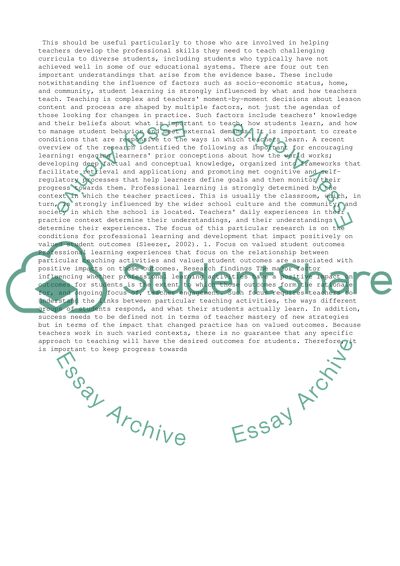Cite this document
(“Teacher Professional Learning and Development Assignment”, n.d.)
Retrieved from https://studentshare.org/business/1397064-developing-professional-practice-and-using
Retrieved from https://studentshare.org/business/1397064-developing-professional-practice-and-using
(Teacher Professional Learning and Development Assignment)
https://studentshare.org/business/1397064-developing-professional-practice-and-using.
https://studentshare.org/business/1397064-developing-professional-practice-and-using.
“Teacher Professional Learning and Development Assignment”, n.d. https://studentshare.org/business/1397064-developing-professional-practice-and-using.


